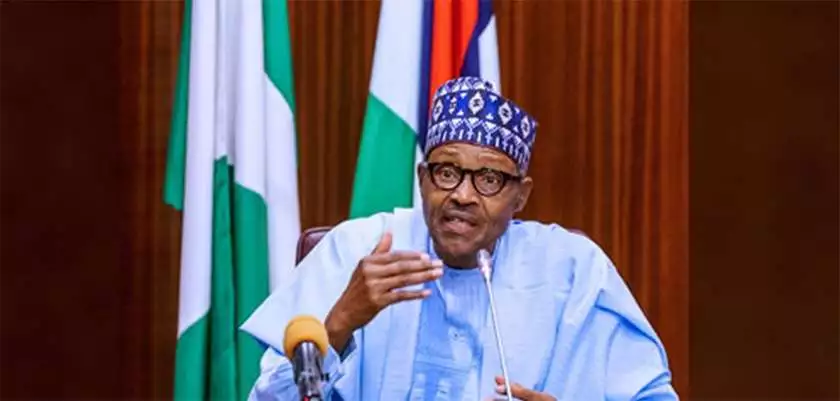By Fola James
President Muhhamdu Buhari has made a fresh request for $6.1 billion loan from the National Assembly for the funding of the 2021 Budget, barely a month after he got approval for $1.5 billion loan, which the federal government said was needed to fund the shortfall in last year’s budget, as well as finance critical infrastructure in the country.
The development has raised serious concern from the critics of the government who said the loan could become a problem for the government to pay back, considering the country’s current financial state.
According to the letter read by Senate President Ahmad Lawan at the Senate sitting on Monday, the president said the loan will be used to fund part of the N5.6 trillion deficit in the 2021 Budget.
What this means is that the President has effectively increased the nation’s debt stock, which the Debt Management Office, DMO put at over N30 trillion at the end of 2020, by close to $8 billion within a year.
The government has yet to give details of where the loan is expected to come from , but the magazine learnt that it’s likely to be sourced from development partners such as African Development Bank, AfDB, IMF, World Bank and China, which recently has become one of the nation’s biggest creditors.
The worry, however, is that Nigeria foreign loan has skyrocketed since the advent of the Buhari administration, critics say, adding that the loan could become unsustainable in the face of year-on-year fall in crude oil receipt due to global economic downturn.
In spite of this, the Minister of Finance Zainab Ahmed said earlier in the year, that the federal government needed the loans to fund critical infrastructure, adding that more debt will be incurred whenever there is need for it.
This, is contrary to IMF, World Bank position that loan request by the Buhari administration has become alarming.
The Financial Counsellor/Director, Monetary and Capital Markets Department, IMF, Tobias Adrian, said two years ago that “Nigeria has been borrowing in international markets but we worry. So, on the one hand, that is very good because it allows Nigeria to invest more; but on the other hand, we do worry about rollover risks going forward.
“At the moment, funding conditions in economies such as Nigeria and other sub-Saharan African countries are very favourable but that might change at some point. And there is a risk of rollovers and there is the risk of whether these needs for refinancing can be met in the future.”
The nation’s total debt profile as of December 31, 2018, stood at N24.387 trillion. The figure swelled by 12.25 per cent from N21.725trillion in 2017 to N24.39trillion in 2018.
The figure, the DMO said has risen to over N30 trillion by December 2020, more than 20 per cent increase within two years.
Last month, the National Assembly approved for the president a $1.5 billion he requested since May last year which the administration said would enable it finance the 2020 budget deficit, fund ‘critical projects’, and support some states of the federation.
The federal government said ”the loans will be used to execute priority projects and support state governments in stimulating their economy, adversely hit by the COVID-19 pandemic”.
The breakdown of the loan, according to the ministry of Finance include $750 million from the World Bank for States, Fiscal Transparency, Accountability and Sustainability, SFTAS programme to provide fiscal support to states.
It also include World Bank’s $750 million for the COVID-19 Action Recovery and economic stimulus programme to support state level efforts to protect livelihoods, ensure food security and stimulate economic activity, N-CARES, apart from the €671 million, €324 million and €995 million from the Export-Import Bank of Brazil (BNDES) & Deutsche Bank of Germany for the Green Imperative to enhance mechanisation of Agriculture and agro progressing in Nigeria (GIP).





